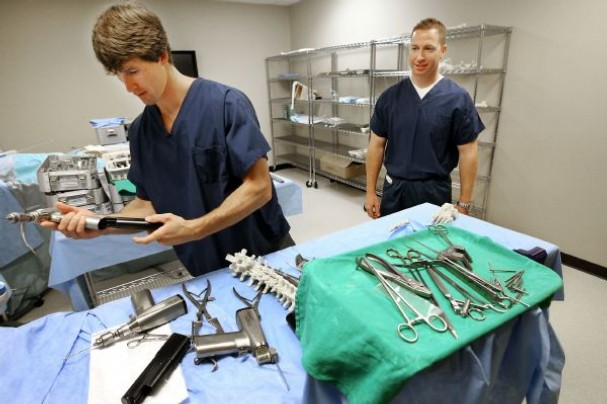Pharmaceutical sales and medical device sales appear very similar when viewed at a glance, and in some ways, they are. Both sectors require sales representative to have excellent people skills and negotiation acumen. Many of the sale processes don’t vary in execution either. However, the two professions pose differences that make one more appealing than the other or more suitable as a career choice, depending on what an individual is looking for. Understanding these differences helps individuals in the two sectors equip themselves for better performance.
Closing the Deal
Perhaps the biggest variation that the two fields present is visible when it comes to closing deals. When a pharma sales representative is selling a product, it is about the perceived benefits and efficacy that doctors and patients will get from it. It is selling an idea of what a drug can do. However, when a medical device rep closes, it is signing of a deal – what is called a true close. A medical rep can tell when they have made a sale. Whatever medical device it is, it’s a tangible item.
Territory
There is a distinction in the type of territory that a medical rep and pharma rep covers. With pharmaceutical sales, you will find that a team of representatives is responsible for a particular region. In such a case, there are three or maybe four reps that are selling products to physicians and medical health professionals in the same area, meaning they can cross over. In such a setup, goals have to be achieved as a team and bonuses are shared the same way as well. Someone who flourishes in a team-based environment may prefer this field. Note that some companies have exceptions to this, especially when dealing with specialty products. A majority of medical device companies allocate to their representatives the areas to cover, meaning they cannot cross over to other territories. It also means that one person receives all the praise and blame that comes with the region allocated to him or her. Such an atmosphere is suitable for an individual who achieves more on their own.
Remuneration
Remuneration is another element that differentiates pharmaceutical and medical device sales. Sales reps for medical device companies have lower salaries compared to pharma sales reps. Employees of both sectors work on a monthly commission structure with companies paying out bonuses quarterly. However, the commission rates for medical sales reps are higher than those paid out to pharmaceutical reps because companies aim to provide good incentives to increase the sale of devices.
Service
The service provided by each field is also a differentiating factor. When a pharma rep makes a sale, they don’t have to do a lot after providing the necessary information regarding a product’s use. Sometimes a pharmaceutical company has to provide information afterwards to maintain awareness. The medical device sale is an excellent example. When a company sells a particular device to a hospital or other medical institution, a service contract has to be signed. The company will be responsible for the maintenance and servicing of the medical equipment. It means that the job of a medical sales rep does not end after closing a purchase. The communication channels have to remain open in case a device malfunctions or requires repair along the way.
Sales Cycle
The sale cycle of medical device sale is different from that of pharmaceutical sales because the field is characterized by fast-growing innovations. Medical equipment that may be efficient now may not be so in the next two years. A hospital may get fidgety about trying out new devices before a contract expires. For this reason, medical device reps must always to be on top of things. They have to be aware of new brands on the market that may influence the decision of buyers. Once a contract expires, it triggers a new sales cycle, which a medical sales rep must be ready for.
Mark Sadaka from Pharma Watch Dog, the leading Hazardous Chemical Attorney, has a national practice and works with clients from New York to Alaska.



